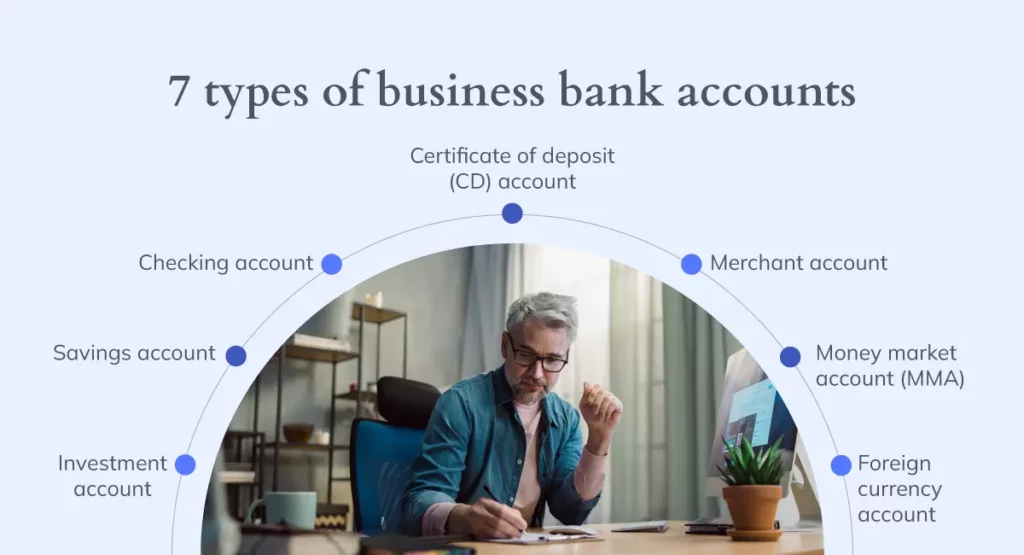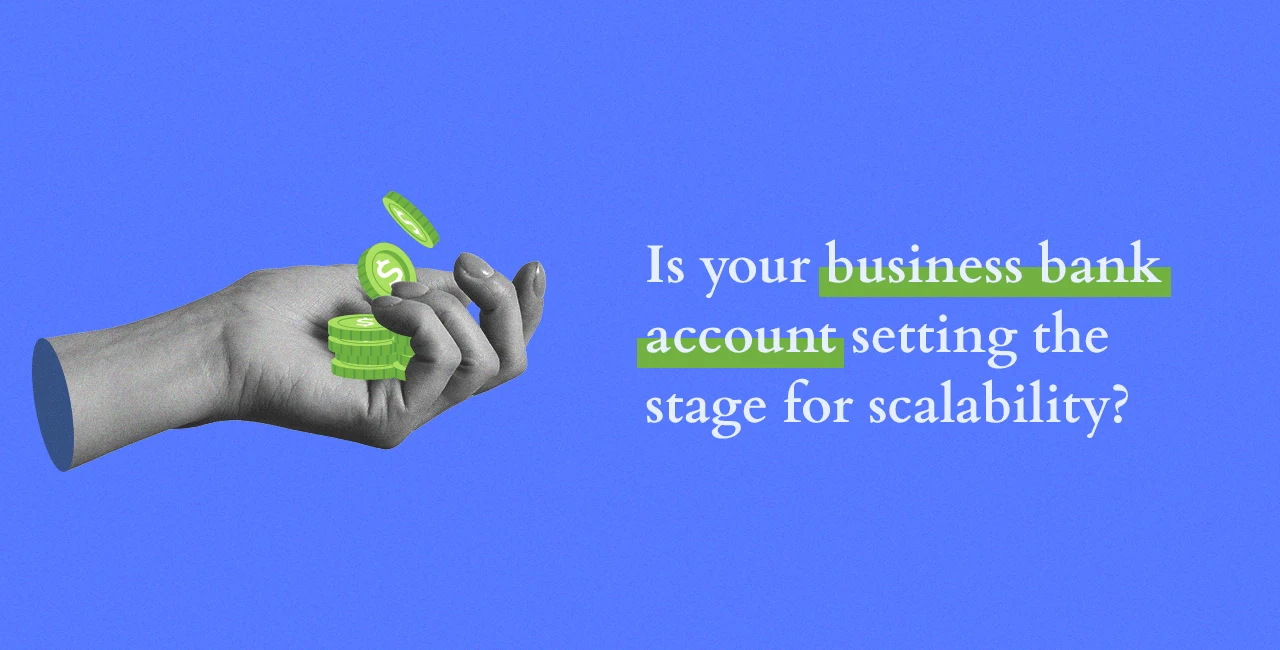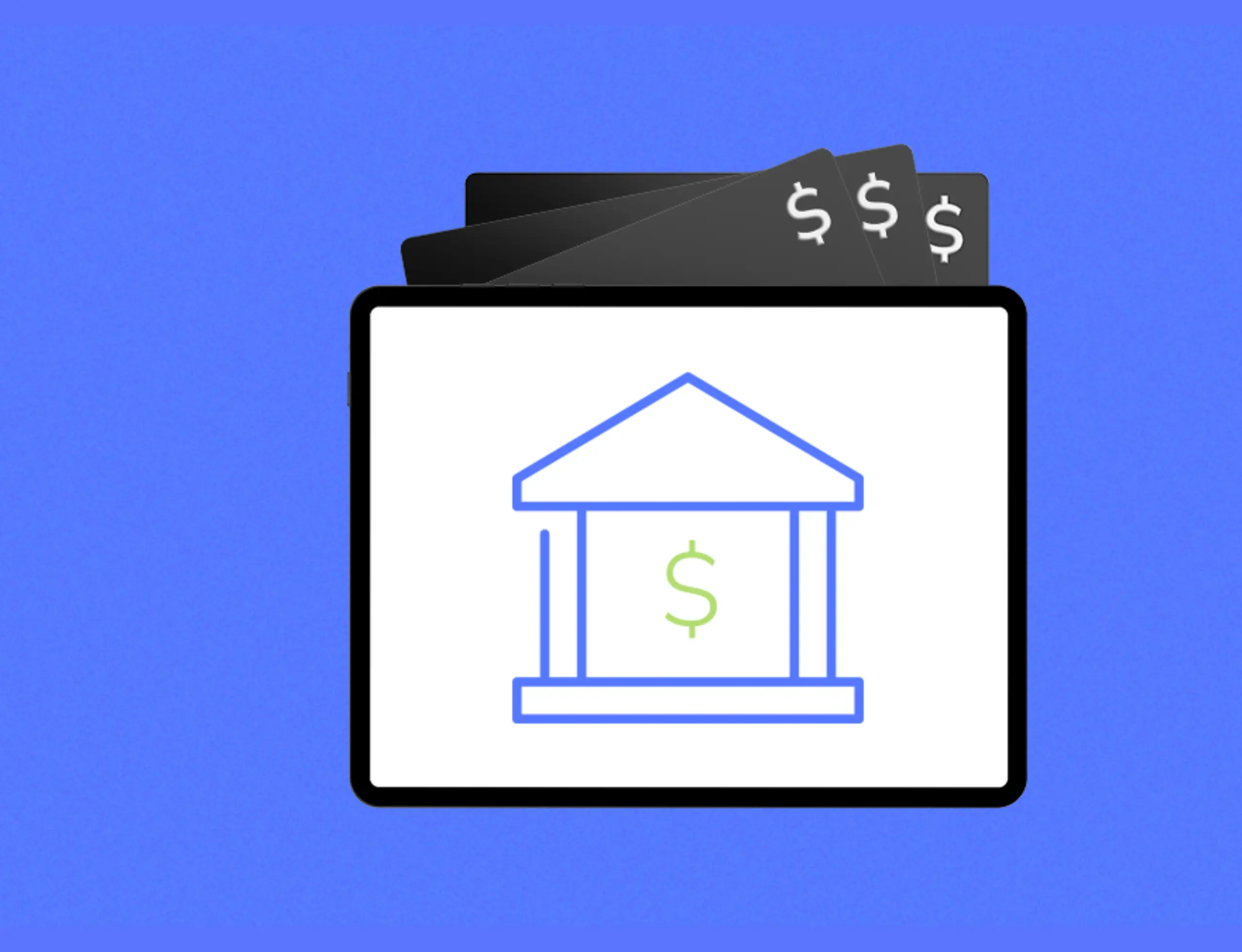Understanding business banking and leveraging the benefits of a business bank account can stimulate your business growth.
Embarking on a business venture is truly a thrilling journey. It begins with pursuing a dream, proceeds to marketing a product or service to sell it, and ultimately leads to managing your financial affairs.
Despite not being the most exhilarating component of a business plan, selecting the right business account and a banking ally is paramount to propelling your business to flourish and yield profits.
In the early stages of business initiation, some business founders underestimate the significance of opening a business account. Instead, they manage their business finances via their pre-existing personal bank accounts. However, conducting business with a personal bank account can generate complexities and adversely impact your business’s reputation. Therefore, business owners should keep personal and business finances separate.
In today’s competitive business landscape, managing your finances effectively is key to success. But where to start? Here’s the information you need to know before opening a business bank account.
What are Business Banking Accounts?
A business bank account is a unique financial resource designed for business needs, distinct from what a personal account offers.
This account facilitates efficient cash flow management, enabling professional handling of business-related transactions. Furthermore, it aids in accurately tracking business expenses, ensuring streamlined financial records, and in some cases, offers additional digital tools to streamline your financial operations.
Importance of Business Banking: The need for specialized banking services for businesses
A business bank account is different from a personal bank account. The former facilitates business transactions, savings, and investments.
Business banking simplifies financial management for startups, solopreneurs, small business owners, and established enterprises. Moreover, it can also help maintain cash flow and set the stage for scalability.
Benefits of a Business Bank Account
Opening a business bank account brings forth numerous benefits that can propel your venture to new heights every single business day, such as:
Protection
Business accounts can streamline your business finances, making it easier to manage income and expenses separately from personal funds.
→ This segregation helps maintain a clear audit trail and aids in tax preparation.
Boost Your Professional Image
When payments are made or received through a business bank account, it conveys a sense of credibility to your clients, suppliers, and stakeholders.
→ It shows that you’re serious about your business and enhancing your reputation in the market.
Build Strong Partnerships
Business bank accounts provide an opportunity to build a banking relationship, which can be beneficial in the long run.
→ Over time, as your relationship with the bank grows, you might gain access to better interest rates, lower transaction fees, and even business loans or lines of credit when needed.
Enhanced Features
Many business accounts, even small business banking accounts, come with valuable extras like business debit cards, online banking, a bank mobile app, check deposits, fraud alerts, and more.
→ These features can save you time and money, making it easier to handle your business finances effectively.
Potential to Establish Business Credit
Like personal credit, a strong business credit profile can improve your chance of getting approved for business loans, credit cards, and lines of credit with better terms.
Types of Business Bank Accounts: What kind of bank account should I Open for My Business?
There are a variety of business bank accounts, each with unique features and benefits. Let’s take a closer look at some of the most common ones:

Business Checking Account
This is the most common type of business bank account and is the backbone of your daily business operations.
→ It allows you to perform transactions, pay bills, write checks, and handle payroll.
→ A business checking account also offers easy access to funds and typically includes online banking features.
Business Savings Account
Businesses aiming to grow their financial reserves should consider business savings accounts.
→ It helps you set aside funds for future business needs, earning interest over time. However, access to funds is more restricted compared to a checking account.
→ It’s a good option for businesses looking to set aside a portion of profits for future investments or unexpected expenses.
Business Investment Account
A business investment account allows businesses to make investments to grow their capital. This account typically offers a higher rate of return than a standard savings account or checking account and could include investments in exchange-traded funds (ETFs), stocks, bonds, and mutual funds. However, they also come with inherent risks associated with market fluctuations.
→ It’s ideal for businesses that have surplus cash and are looking to generate additional income.
Business Certificate of Deposit (CD) Account
A CD account allows businesses to invest a fixed amount of money for a predetermined period (ranging from months to years) at a fixed interest rate to earn guaranteed interest.
→ Businesses with surplus cash, which they won’t need for some time, would find this a good option. However, withdrawing funds before the end of the term may result in penalties.
Merchant Account
Merchant accounts are essential for businesses that accept credit card payments and debit card transactions.
→ A merchant account acts as an intermediary between the business, the credit card company and the bank to ensure smooth, secure, and efficient transactions.
→ It’s an essential account for online businesses that perform online transactions.
Business Money Market Account (MMA)
A business money market account is similar to a savings account. The main difference is that it usually offers a higher interest rate than regular savings accounts. The catch is that they often require a higher minimum balance.
→ These accounts also usually offer limited check-writing and debit card access.
→ MMAs are suitable for businesses that maintain a high account balance and need a safe place to store their funds while earning interest.
Foreign Currency Account
A Foreign Currency Account can be beneficial for businesses that transact internationally frequently.
→ This account allows businesses to hold, receive, and make payments in foreign currencies, which can help to avoid exchange rate fluctuations and conversion fees.
→ This can be ideal for businesses with global operations or expanding internationally.

What do you need to know about opening a business bank account?
How to Open a Business Bank Account?
1. Determine the type of business bank account you need
Are you seeking a business checking account or a savings account? A combination of online business checking accounts and savings, or even a mix of checking, savings, and investment?
Clarifying your business needs and aspirations will help you identify the types of accounts necessary.
→ This is an essential first step in curating a list of potential banking institutions.
2. Investigate potential business banking account options
Refer to your checklist of essential features and factors as you explore the different business bank account options.
While investigating, record the necessary features, desirable but non-essential features, and those that hold little value for you and your business.
→ Remember to keep track of the different fees associated with each bank.
3. Compare your options
Narrow your list to three to five banks that fulfill your criteria. In the next section, we expand on the factors to consider when selecting a corporate bank.
→ Evaluate the bank account features, their market strategy targeted at businesses in your industry and funnel stage, or recommendations from other companies with similar needs.
4. Engage with your top banking contenders
Reaching out to the banks on your shortlist and requesting a brief discussion can prove beneficial.
→ Engaging will allow you to pose your queries to someone and may even reveal undisclosed offers or incentives to open an account.
5. Settle in a financial institution
After thoroughly researching and familiarizing yourself with the options, it’s time to choose.
→ Yes, Bancoli is an excellent option for global businesses and businesses of all sizes, including solopreneurs and freelancers.
How to Choose a Business Bank? Factors to Consider When Selecting a Bank for Business
Selecting the right bank for your business is crucial. Therefore, we will expand on point 2 of the previous section. Once you match your business goals with what you need in a business bank account, it’s time to choose your bank. If you are looking for a bank that is also a complete financial platform to save you time and money every business day, Bancoli is your go-to choice.
Here’s what you need to consider:
Monthly Maintenance Fee
- Look out for monthly fees, monthly maintenance fees, transaction fees, and other charges that may eat into your profits or business income.
- Always understand the costs associated with your selected account and explore possibilities to avoid them.
→ Bancoli’s Global Business Account offers 4 membership plans: Vault, Vault Plus, Vault Premium, and Vault Enterprise. The premium plans allow you to waive fees using Bancoli Reward Points (BRP).
Regardless of your plan, Bancoli’s rates are designed to boost your business globally. You can consult them here.
Minimum Balance Requirements
- Some banks require a minimum balance in your account. Make sure this minimum daily balance requirement aligns with your cash flow.
→ Bancoli Global Business Account membership plans do not require a minimum balance.
Limits on Monthly Transactions
- Certain banks limit the number of transactions you can make monthly and the minimum and maximum amounts of each transaction. Ensure these limits won’t affect your business operations.
→ With Bancoli’s GBA, you get unlimited transactions: send and receive B2B cross-border payments completely free. Moreover, you can benefit from competitive transaction fees and the best global FX rates on the market.
Benefits of Your Operations
- Some accounts offer benefits in your operations. If you are considering accounts with such benefits, evaluate monthly fees and automated features to comprehend the potential earnings based on your financial management.
→ With Bancoli, you can drive yield with every invoice paid on time – even if the seller didn’t include a discount.
Convenience and Friendly Interface
- Research the estimated time to send and receive payments. Knowing how many hours or business days are required is essential, as it can impact exchange rates.
- Business banking should simplify your financial management, not complicate it. Choose a bank that makes account setup and usage a breeze.
→ On average, it takes new Bancoli users only 15 minutes to complete account verification—the best 15 minutes you’ll spend going global!
What business bank account documents are required to open a business account?
Given the correct paperwork, whether you choose in-person banking or online banks, navigating the path to opening a business bank account can be simple.
Assemble the necessary paperwork
It is beneficial to have a rough idea of the required documentation to open an account. After choosing your bank, you can request a definitive list of necessary materials.
Financial institutions frequently request specific documentation when opening a business bank account. However, additional paperwork may be required at the discretion of some banks. In general, the necessary documents to open a business bank account include:
- The business’s legal name, tax identification number, and details regarding its legal structure.
- To verify the authenticity of the business, personal identification and, in some cases, a business license or other relevant documentation may be needed.
Present the paperwork and inaugurate the account
With all you require in one location, the account opening process is typically straightforward and concise. You’ll present the necessary paperwork and receive an onboarding guide from the bank.
In general, opening a business bank account is rigorous but relatively simple. The true challenge lies in navigating the vast offer of financial institutions competing for your business – a crowded market that can be overwhelming. Nonetheless, you’re well-equipped to make an informed decision by evaluating all possible options and comparing them with your priorities and needs.

Global Business Account: The bank account that matches your business potential
Bancoli is the financial passport for businesses of all sizes. It is a 3-in-1 B2B platform that offers invoicing, payments, and banking services with a vast array of digital tools to streamline your financial operations.
With Bancoli’s Global Business Account, you can streamline your business expansion in new markets. These are its main benefits and business tools:
Global Business Account
- Transact in over 25 currencies and 200 countries globally, saving on conversion and foreign transaction fees with a multi-currency account.
- Send and receive international payments between Bancoli accounts, taking advantage of instant and unlimited transactions and even greater savings all in one place without the stress of fluctuating fees.
Cash Flow Management Tools
- Automate invoices, payment reminders, and early payment access to ensure timely payments.
- Additionally, Bancoli’s robust cash flow analysis and forecasting capabilities empower businesses to gain deeper insights into their financial position and make informed decisions to optimize their financial
Taking Safety to the Next Level
- Bancoli offers the Bancoli USD Custody. It guarantees maximum security and reliability of the funds, with a limit of USD 125 million per account holder. Moreover, you have unrestricted access to your funds with no lockups.
- Benefit from fund safety that is up to 500 times larger than traditional US FDIC-insured institutions and more than 1000 times larger than European bank insurance.

Conclusion: Embrace the Future of Business Banking with Bancoli
In conclusion, establishing a business bank account is essential to your business journey. It not only simplifies your financial management but also provides numerous growth opportunities. Therefore, it’s imperative to carefully consider your banking options and choose an account that best suits your business needs. The right banking partnership can be a powerful tool for success.
With a Bancoli Global Business Account that matches your global aspirations, you’re equipped with the business tools, solutions, and features you need to thrive in the global marketplace.




